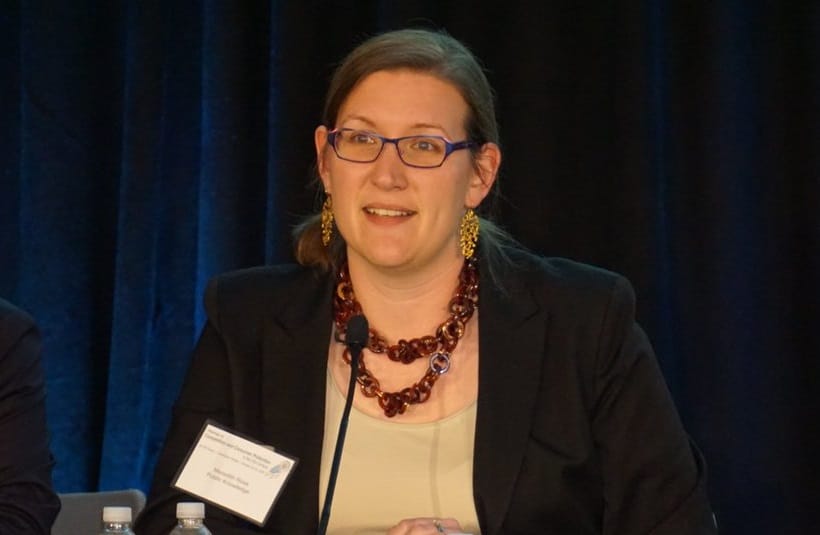Coronavirus Roundup: Georgia’s On the Mind of Public Access and Broadband Equity Advocates, Libra and Digital Dollar
On Monday the United States Supreme Court determined that Georgia’s state-codified annotation system of law is not eligible for copyright protection. Public interest groups criticial of a “copyright maximalist” position applauded the decision, Georgia v. Public Resource.Org. “Today’s decision is a r
David Jelke

On Monday the United States Supreme Court determined that Georgia’s state-codified annotation system of law is not eligible for copyright protection.
Public interest groups criticial of a “copyright maximalist” position applauded the decision, Georgia v. Public Resource.Org.
“Today’s decision is a resounding victory for public access to the law,” said Meredith Rose, Policy Counsel at Public Knowledge.
“The Supreme Court has held for over a century that edicts of government cannot be locked away under copyright protection,” said Rose.
“Today the Court held that to be true even when the act of compiling and composing those government works is outsourced to a private party under a work-for-hire agreement, and the legislators cannot be considered ‘authors’ under the Copyright Act when they are performing their official duties. Citizens have a fundamental right to access the law in its entirety; copyright law cannot, and should not, stand in the way.”
Libra drove e-currency talk in Congress, argues author in Forbes
Facebook’s attempt at cryptocurrency called “Poject Libra” drove the idea of the “digital dollar” that is currently circulating in Congress, argues Jason Brett of Forbes.
Two bills, the Banking For All Act and the Automatic BOOST to Communities (ABC) Act have recently been proposed. The benefits of a “digital dollar” in today’s world would be twofold: An easier way for the government to send monthly assistance checks to Americans, and to cut the spread of virus via paper money, which has been shown to harbor the disease for up to four days.
In May 10, 2019, the Senate Banking Committee requested more information from Mark Zuckerberg about Facebook’s cryptocurrency project. One July 15, the committee held a hearing on the project with David Marcus, head of the project at Facebook.
Now two bills have been proposed with very similar features as to Facebook’s Libra, such as providing a free e-Wallet and accompanying currency. However, many in the cryptocurrency industry agree that rushing out a digital platform would be a bad idea despite the great demand for such a tool.
”Realistically, the US will not implement a digital dollar in time to make a difference for the COVID-19 response,” said Kevin Werbach, Professor of Legal Studies and Ethics at Wharton University. “However, the current situation highlights why this country must move forward toward a modern digital currency capitalizing on blockchain technology.”
Stories from the digital divide include gaping holes in the ‘homework gap’
The Benton Institute for Broadband and Society, a non-profit organization dedicated to ensuring that all people in the U.S. have access to competitive, high-performance broadband, has been collecting unique perspectives about the importance of broadband in their “Digital Beat” column.
As a result of the new coronavirus, more than 300,000 students from Georgia’s university system have returned home to finish their courses online. Hence the homework gap is a real and pressing problem.
“Now more than ever, I have realized the great digital divide in our state, and because of it, high-achieving students, particularly in rural Georgia, are suffering immensely,” writes Briana Hayes, a third-year student at the University of Georgia.
Hayes recounts the story of Landon Clark, a Goldwater Scholar and student at the University of Georgia:
“I had to move back home in southwest Georgia, where my Wi-Fi is extremely bad and only one company offers cellular data services where I live. Because of this, my Internet often cuts in and out. When I try to watch a lecture video, it constantly buffers. To compensate for this, I have to download the videos, but I am finding that each video takes 6-8 hours to download onto my computer.
“I am afraid I will have to withdraw from classes that I am physically not able to complete due to being unable to attend lectures, take quizzes/tests, and watch any sort of online video. I live in Leesburg, Georgia, a town of two stoplights and less than 3,000 people. Adjacent to my city is Albany, Georgia, which currently has the highest deaths per capita in the United States. I am currently triple majoring in Biochemistry & Molecular Biology, Genetics, and Biology.
“I currently have a 4.0 and was recently named a 2020 Goldwater Scholar, the most prestigious undergraduate scholarship in the natural sciences, mathematics, and engineering in America. However, I need to opt for the pass-fail system in order to not be overwhelmed or overly stressed.
“The USG is not ‘aiming to a higher standard’ by refusing pass/fail,” concludes Clark. In fact, it is doing the opposite. The USG is disadvantaging students living in rural Georgia who are effectively unable to complete their online classes due to poor Internet, favoring those from urbanized areas who have quality Internet access.”
After analyzing Landon Clark’s perspective and combining it with her own research, Hayes notes that “a system that instructs students to “reach higher” without ensuring all students have sufficient access to the necessary resources is utterly broken. It is analogous to telling students to climb without offering a ladder first.”









Member discussion